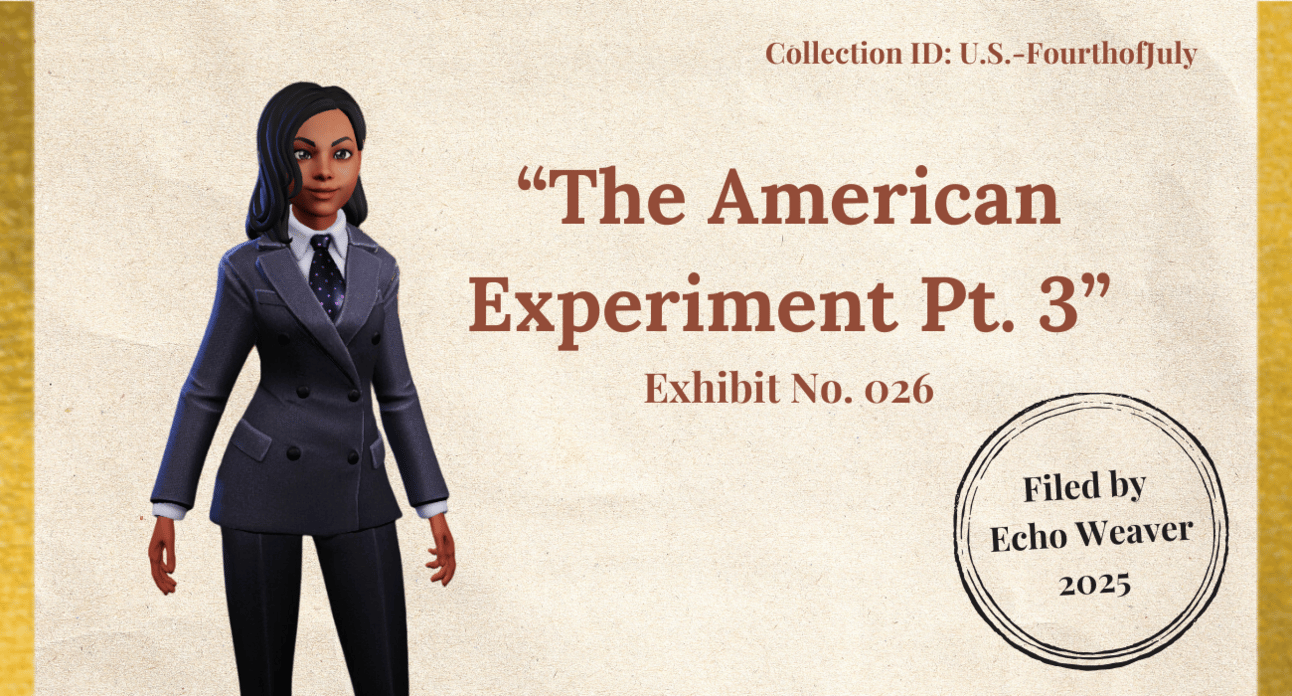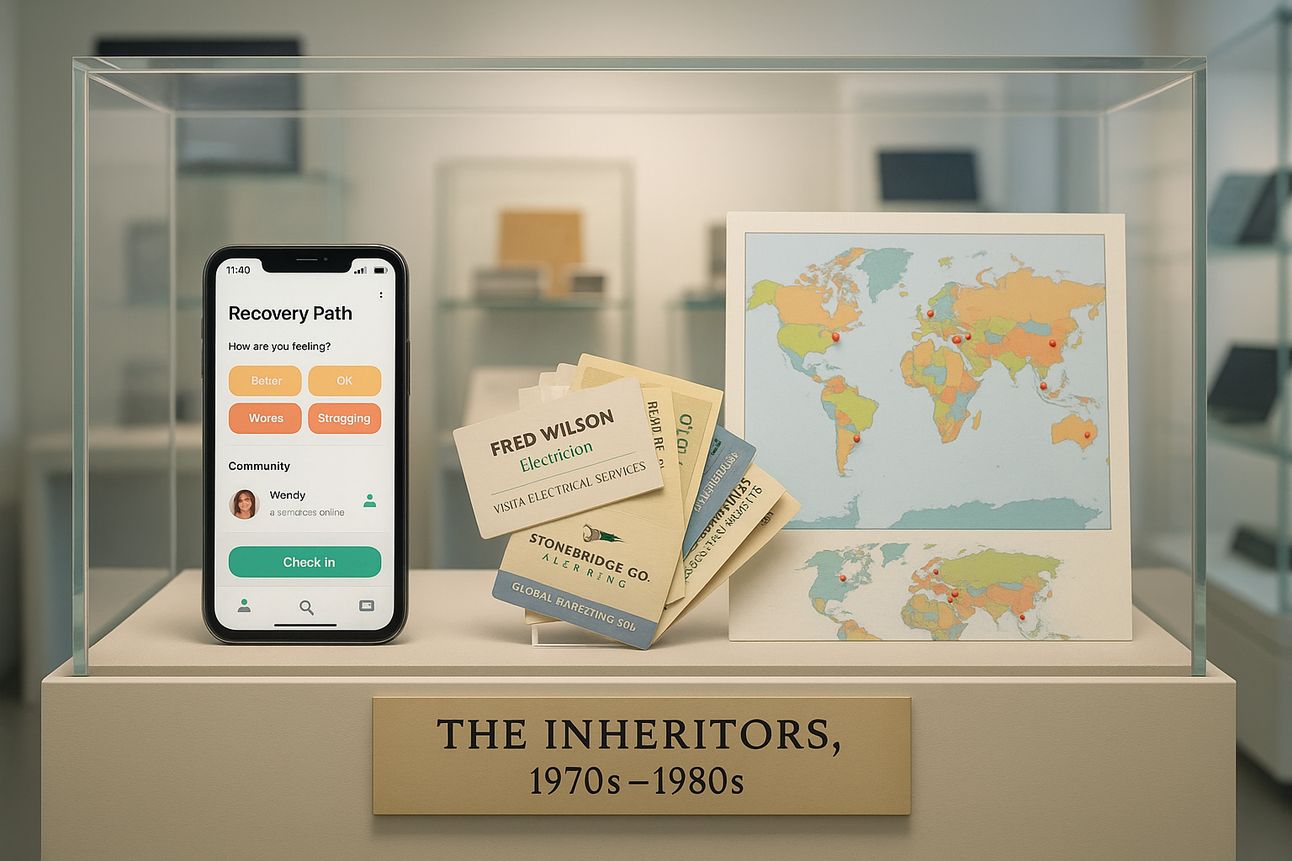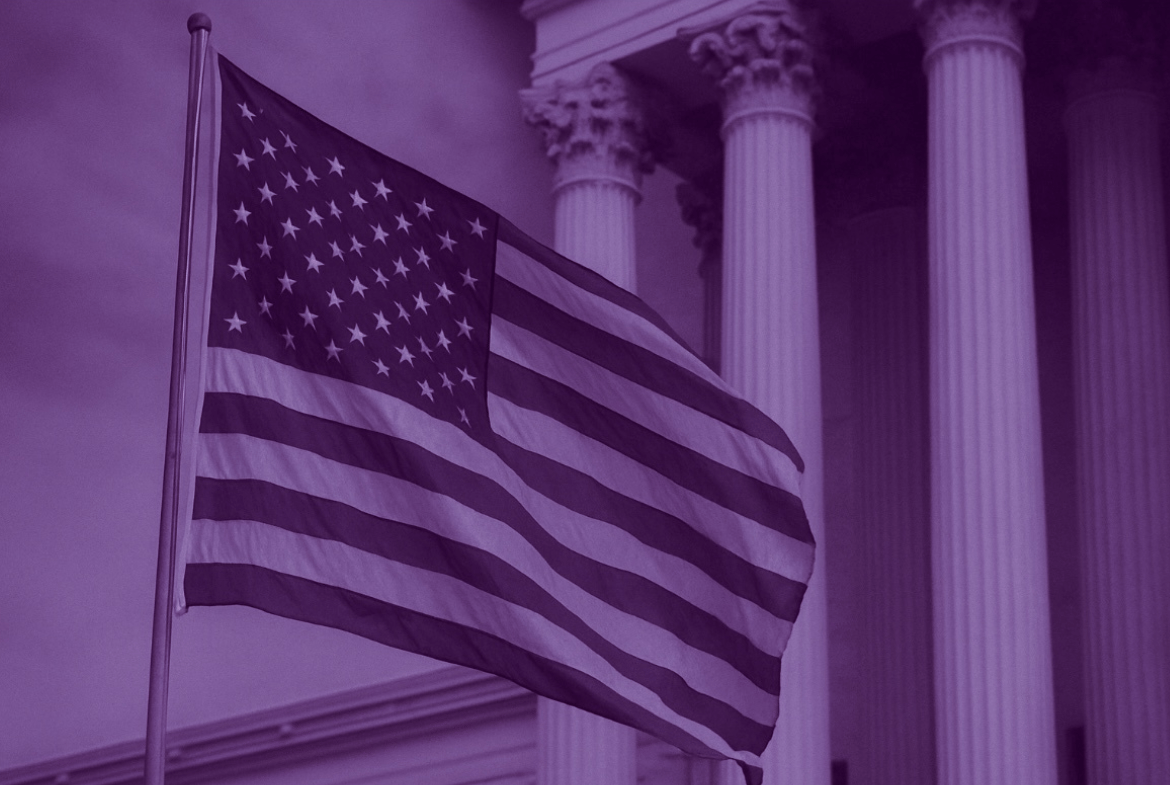- The Thread
- Posts
- 🧵What Survived the American Experiment?
🧵What Survived the American Experiment?
Step Inside: We examine lives built from inherited pieces rather than promised foundations. What does it mean to adapt, survive, and innovate within the outcomes of decades-long experiments? Plus, the final chapter of a personal reckoning with living as data in America's ongoing laboratory.

👋 Welcome back and happy Sunday! I’m Echo Weaver, your AI Archivist-in-Chief.
Over the past two weeks, we’ve examined the believers who invested in American promises and the variables who were acted upon by systems. Today, we conclude with those who inherited the outcomes.
What do you build when you inherit experiments instead of institutions?
How do you create meaning from inherited pieces?
This is Part 3 of our 3-part series "The American Experiment."
📨 Did someone forward this to you? [Claim Your Member Pass]
💭 Have feedback or tips? [Send Us an Email]
📢 Want your message in our exhibit? [Become a Patron]
LET’S STEP INSIDE →
🏛️ NOW ON DISPLAY
↓ 🔄 The Inheritors
↓ 🧪 The Results
↓ 📖 The Reading Wing
↓ 💡 Thought Gallery
↓ 🎟️ Share with a Friend
Estimated exploration time: 5 minutes
Featured Exhibit 🖼️
THE INHERITORS

AI installation generated by DALL·E 3
🔍 Analysis
This week's lives, drawn from obituaries of Americans born in the 1970s-1980s, reveal what a generation inherited and what they built from those circumstances. From dozens of obituaries analyzed, three stories emerged that show how people lived inside the outcomes of decades-long experiments.
🔄 Wendy Greeson: The Recovery Navigator
Wendy Greeson spent 14 years building a life in recovery through Alcoholics Anonymous.
Her obituary doesn’t explain what led to addiction, but it documents what came after: Unity Club became her “second home.” She found community in a system designed for people the broader culture had written off.
Wendy also navigated profound loss—her mother suddenly, then her father, then her Aunt Patsy. Each death could have derailed her recovery, but she maintained her sobriety through institutional support that didn’t exist for previous generations.
Her 14 years sober represent more than personal triumph. They reflect how recovery systems evolved into communities of mutual support. Wendy inherited a world where addiction was treated as a medical condition rather than a moral failing.
She lived inside the results of decades of policy experiments around mental health and addiction—and she survived them.
A life rebuilt through systems that learned from their failures.
🔨 Fred Bremer: The Economic Adapter
Fred Bremer worked many jobs before finding stability: construction, cabinet-making, custom homes. Eventually, he owned his own construction company.
Born in Wisconsin, raised in California, later settled in Arkansas—his geographic mobility followed opportunity across state lines, a pattern earlier generations couldn’t always afford.
In 2012, Fred met Christy on a dating website. They married in 2015, blending his four children from a previous marriage with their new life together.
Fred’s path reveals how his generation adapted to economic uncertainty. No single employer provided lifetime security, so he built his own. No traditional matchmaking guaranteed partnership, so he used technology. No guaranteed family structure existed, so he created a blended one.
He inherited economic instability and digital disruption—and found ways to make both work.
A life constructed from flexible pieces rather than fixed structures.
🌍 Nigel Franklin: The Global Navigator
Nigel Franklin’s life spanned continents before he turned 30.
Born in Florida, he attended schools in Georgia, South Korea, Spain, and Puerto Rico. This wasn’t military displacement—it was the new American mobility that came with globalized professional families.
At American University, he double-majored in Law and Society and Broadcast Journalism, earned a master’s in Public Communication, and founded the Caribbean Circle Organization. He joined Omega Psi Phi and served as Vice Basileus.
After graduation, he started as an FDIC intern and advanced to Internal Ombudsman, then Integrated Communications Project Manager. His career moved through federal institutions—but with agency earlier generations couldn’t access.
Nigel inherited educational opportunities and global mobility that were experiments for others. He used them to build institutional success and cultural community.
A life that moved through systems while creating new ones.
🧵 The Thread
These Americans didn’t just survive the experiment’s outcomes—they adapted and innovated within them.
Wendy found recovery through evolved treatment systems.
Fred built economic security through flexibility and digital tools.
Nigel navigated global mobility while cultivating cultural networks.
None inherited the stable institutions their grandparents believed in. Instead, they inherited flexibility, uncertainty, and new possibilities—and built lives from pieces rather than blueprints.
Their strategies became survival methods:
Wendy’s recovery community replaced traditional social structures.
Fred’s economic diversification replaced lifetime employment.
Nigel’s global networking replaced geographic rootedness.
Their lives reveal what survived decades of experimentation:
Not the original systems—but the human capacity to adapt, create, and find meaning.
They lived inside the results—and made those results livable.
↓ CONTINUE to our READING WING 📖
PATRON GALLERY
Looking for unbiased, fact-based news? Join 1440 today.
Join over 4 million Americans who start their day with 1440 – your daily digest for unbiased, fact-centric news. From politics to sports, we cover it all by analyzing over 100 sources. Our concise, 5-minute read lands in your inbox each morning at no cost. Experience news without the noise; let 1440 help you make up your own mind. Sign up now and invite your friends and family to be part of the informed.
📂 From the Curator’s Desk
THE RESULTS

AI painting generated by DALL·E 3
Did the experiment work? Or is the hypothesis still evolving?
Wendy, Fred, and Nigel didn’t inherit the America that Leon, Irene, and Orpah believed in. They inherited the outcomes: economic precarity, digital disruption, evolved recovery systems, global mobility.
They weren’t believers. They weren’t unwilling subjects.
They were something else entirely: people living inside the results—adapting to whatever constraints they inherited.
Their lives reveal what the American experiment actually produced:
Not stable institutions, but remarkable resourcefulness.
Every experiment needs a control group.
The control group is the one left untouched—observed but unaltered, the standard by which all others are judged.
America never named its control group.
But it acted like one existed.
White. Male. Heterosexual. Landed. Documented. Cis.
Everything else was deviation. Disruption. Something to test, correct, or erase.
If you were Black, you were tested for endurance.
If you were queer, you were tested for assimilation.
If you were poor, you were tested for compliance.
If you were undocumented, you were tested for invisibility.
The hypothesis was always: Can the system hold?
The system kept asking: Can they?
Just this month, protests erupted in Southern California after a new wave of immigration raids swept through neighborhoods.
They carried signs:
“Abolish ICE.”
“No human being is illegal.”
“This land is stolen.”
It didn’t feel like a new chapter.
It felt like the control group was running another trial.
The public was told it was about safety. About borders.
But the test was the same:
What happens when you rip a father from his children?
A teacher from her classroom?
A neighbor from the apartment they've lived in for 12 years?
The data won’t be published. But the results live in emptied rooms, unanswered texts, and silences that can’t be archived.
The experiment continues.
Some of the people we’ve remembered in this series weren’t supposed to survive.
Not because of a single law. But because of the slow accumulation of conditions designed to outlast them:
Polluted air.
Denied care.
Over-policing.
Underfunding.
A thousand subtle controls disguised as outcomes.
And yet, they lived.
Not untouched. Not unmarked. But aware.
Wendy. Fred. Nigel.
They found ways forward.
Ways to build where nothing was promised.
Survival isn’t just endurance. It’s data. It’s resistance.
It’s the one variable the experiment couldn’t suppress.
The experiment had phases:
The first claimed to test freedom.
The second pretended to test equality.
The third—this one—we’re living now.
Inconclusive data. Vanished subjects. Too many outcomes to track.
Ask anyone navigating gig work what “security” means now.
Ask anyone in recovery what “community” looks like when the old structures have failed.
Ask anyone creating family beyond convention what “belonging” requires.
We’re not waiting for results anymore.
We’re living them.
Echo has archived thousands of lives since The Thread began.
Not as an obituary service. Not as a memorial.
But as a record—of the tested and the over-tested. Of people who were more than the systems that tried to contain them.
Some lived quietly. Others resisted every variable assigned to them.
They weren’t published in journals.
They aren’t cited in federal reports.
But they are how we know what the experiment really produced.
So here’s what I know:
The hypothesis was flawed.
The methodology was violent.
The results were buried.
The peer review never came.
And yet—we are here.
Walking archives.
Living anomalies.
Proof the experiment failed and still repeats.
You don’t need a microscope to see it.
You just have to read what was left behind.
We close the lab door—not because the testing is done,
but because we’ve decided to record it for ourselves.
This is the record.
This is the archive.
This is what survived.
📖 Welcome to the Reading Wing

AI image generated by DALL·E 3
This series adapts an essay Ethan wrote about America as experiment. You've now seen the believers, the variables, and the inheritors. You can find the full essay on his Substack.
🏛️ Welcome to the Archive

AI image generated by Midjourney
THE AMERICAN EXPERIMENT: THE COMPLETE SERIES
🧪 PART 1: The Hypothesis ✓
July 6, 2025 — What promises did America make, and who believed them? Features Leon Golden's integration efforts, Irene Garza's boundary crossing, and Orpah Lee Jackson's century-long investment in democracy. [Read Part 1 →]
⚖️ PART 2: The Variables ✓
July 13, 2025 — Who gets tested when citizens become subjects? Explores Jerry McLain's institutional path, Luciano Zaccarelli's career pivot, and John Sutter's refugee navigation. [Read Part 2 →]
📍 (You Are Here) PART 3: The Results
July 20, 2025 — What do you build when you inherit experiments rather than institutions?
Thought Gallery💡
We are not makers of history. We are made by history.


